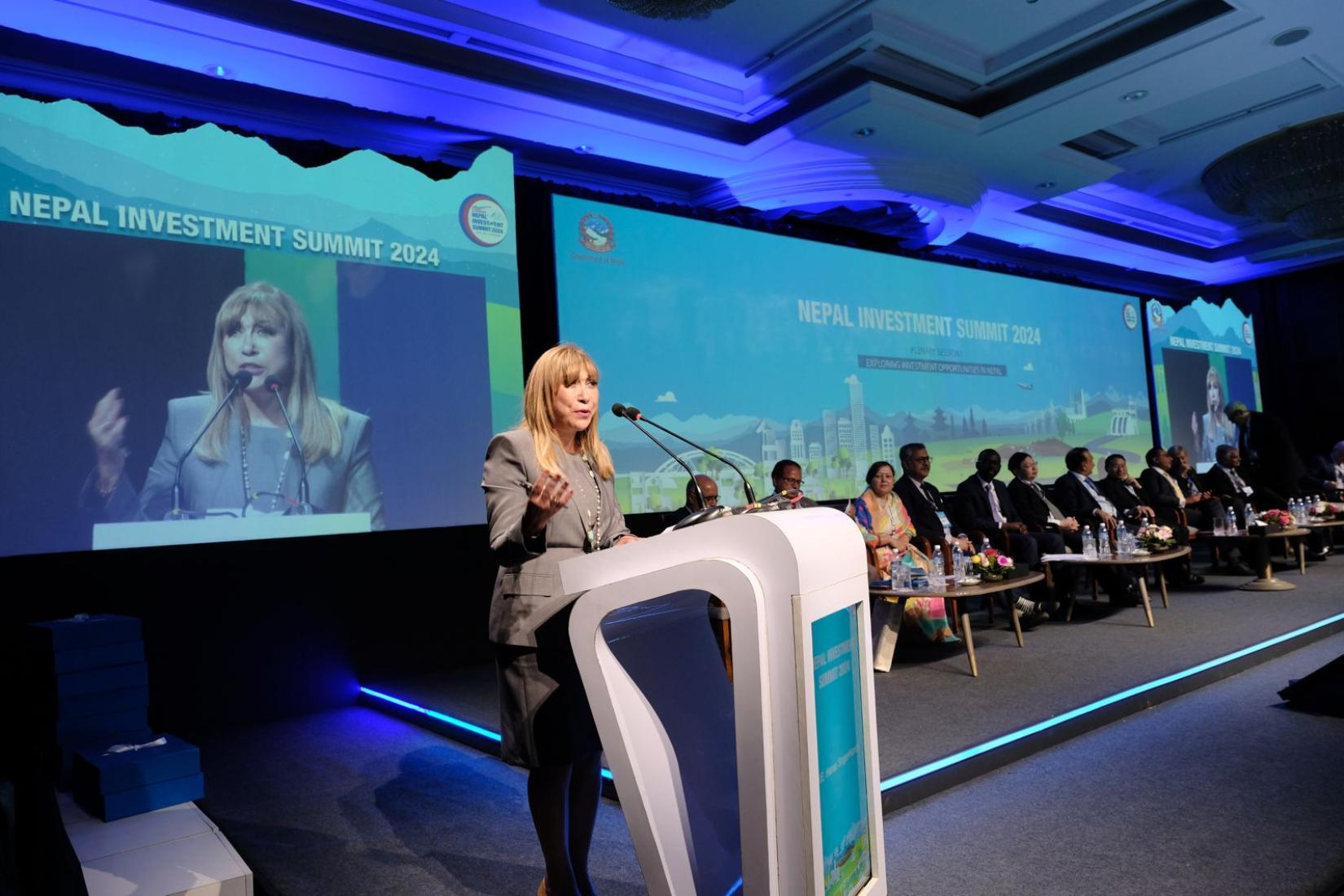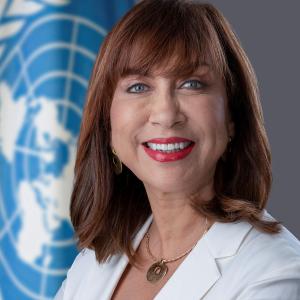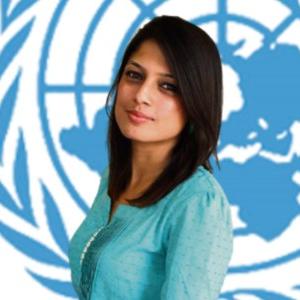Exploring Investment Opportunities in Nepal
28 April 2024
UN Resident Coordinator in Nepal
Remarks at the Nepal Investment Summit
Day 1 Plenary Session 1 “Exploring Investment Opportunities in Nepal”
Monday, April 28, 2024,
12:30 – 13:50 hrs, Kathmandu

Honorable Finance Minister Mr. Barsha Man Pun
Fellow panelists
Delegates,
Namaste and a wonderful afternoon to all of you!
Dear delegates.
I think between the presentations of this morning and now everything has been covered so I want to highlight the three Ps: People, Planet and Partnership for Peace and Prosperity.
That is what the member states have committed to through the 2030 Agenda for Sustainable Development. And these three Ps, I believe, provide immense opportunities for investment in Nepal.
First, always the People.
Nepal has a very young population. About 41 percent of Nepalis are between ages 16 and 40. These are young people, with muscle and brain power, bursting with energy and innovative solutions. This unique demographic dividend is a crucial window of opportunity for Nepal, that begs to be tapped with great urgency!
Tapping into this demographic dividend means increasing investment in health, education, frontier technology, and digital transformation. To unlock this potential, we must invest even more women, girls and marginalized communities and increase their access to Science, Technology, Engineering, and Mathematics. It may also entail removing barriers for their access to business and employment opportunities. Removing such barriers could also mean there will be more women represented in every sphere including our speakers in this summit.
I couldn’t help but notice the negligent participation of women as presenters and speakers in this meeting. But I hope for the next one we will have much more women.
My second point is about the planet. I need not tell you about the potential in this fantastic country.
Trees cover nearly half of this beautiful country. Himalayan glaciers provide fresh water, as well as the potential to generate an estimated 40,000 megawatts of hydroelectricity by the rivers downstream. As previous speakers highlighted, these natural resources provide investment opportunities.
However, we must make every effort to ensure that financial flows are used to uplift, rather than undermine, the environment, biodiversity and human lives.
What these investments should do is to contribute to offset carbon, accelerate the transition to sustainable energy, and lead to a green economy. These investments should contribute to limiting the rise in global temperature to 1.5°C. and help to achieve net zero.
Yes, these investments will be higher up front, due to the need for investment in frontier technologies and innovation. However, these will ensure a livable planet not just for our generation but those generations who will eventually inherit this planet. This will be one of the issues that the Summit of the Future will also be focusing on in New York this September.
And this brings me to my third point, that is Partnership for sustainable development.

Nepal can explore new blended finance approaches that can crowd in private sector, multiply developmental impact and create opportunity for public sector to share risks and rewards fairly. This way, public and private finance together help augment private investments, especially in high risk and low return areas.
Multilateral Development Banks (MDBs), Development Financial Institutions (DFIs), Private Development Banks (PDBs), and development cooperation agencies can work even closer with private partners to leverage resources.
Each of these transitions requires engagement of multiple policy reforms spanning economic, social and environmental dimensions. With the recent effort to amend laws, the government is demonstrating a strong commitment to improving the investment environment.
United Nations stands with the people of Nepal. The world must do the same. As Nepal prepares for LDC Graduation in 2026, we will continue to work with the Investment Board Nepal and concerned ministries to help increase the flow of sustainable investments in the country. We will continue to support the development of a strong business ecosystem with a vision for sustainable, inclusive, and green economy.
To conclude, I would like to reiterate our commitment to take our future generations into account. This need not come at the expense of those currently living. With advances in science, humanities and technology, we have an enormous opportunity that can be harnessed for the good of all generations of Nepalis.
Dhanyabaad!

Hanaa Singer-Hamdy
Prior to this, she held several senior management positions in UNICEF offices across the world, including as the Associate Regional Director in Geneva and as Country Representative for Syria, Nepal, Kazakhstan and Azerbaijan.
In Syria, she provided strategic leadership to one of the largest protection crises on the global stage – successfully scaling up programmes through an integrated package of high impact interventions in health, nutrition, water and sanitation, education and child protection - increasing the reach of UNICEF’s work to the most vulnerable children including in besieged and hard-to-reach areas.
As UNICEF Chief in Nepal, she pioneered strategic programmes for scaling up sanitation, adolescents and multisectoral nutrition programmes, establishing strategic new alliances resulting in the government adopting national action plans. She has also led humanitarian programmes in Burundi and Haiti, and as a regional emergency advisor for CEE/CIS countries coordinated setting up cross border humanitarian operations to Afghanistan ,from central Asia, and Iraq,from south Turkey. She also provided technical support to emergency preparedness programmes in the North Caucasus, CEE/CIS countries .
Ms. Singer-Hamdy holds a Master's degree in Political Sociology and a Bachelor's degree in Political Science from the American University in Cairo, Egypt. She obtained a diploma in “Planning and Management of Decentralized Development Projects” from Bradford University in the United Kingdom. Ms. Singer-Hamdy has engaged in academia and research in political sociology and international relations at the American University of Cairo and at the Sadat’s Academy for Management Sciences, Faculty of Political Science of Cairo University.





